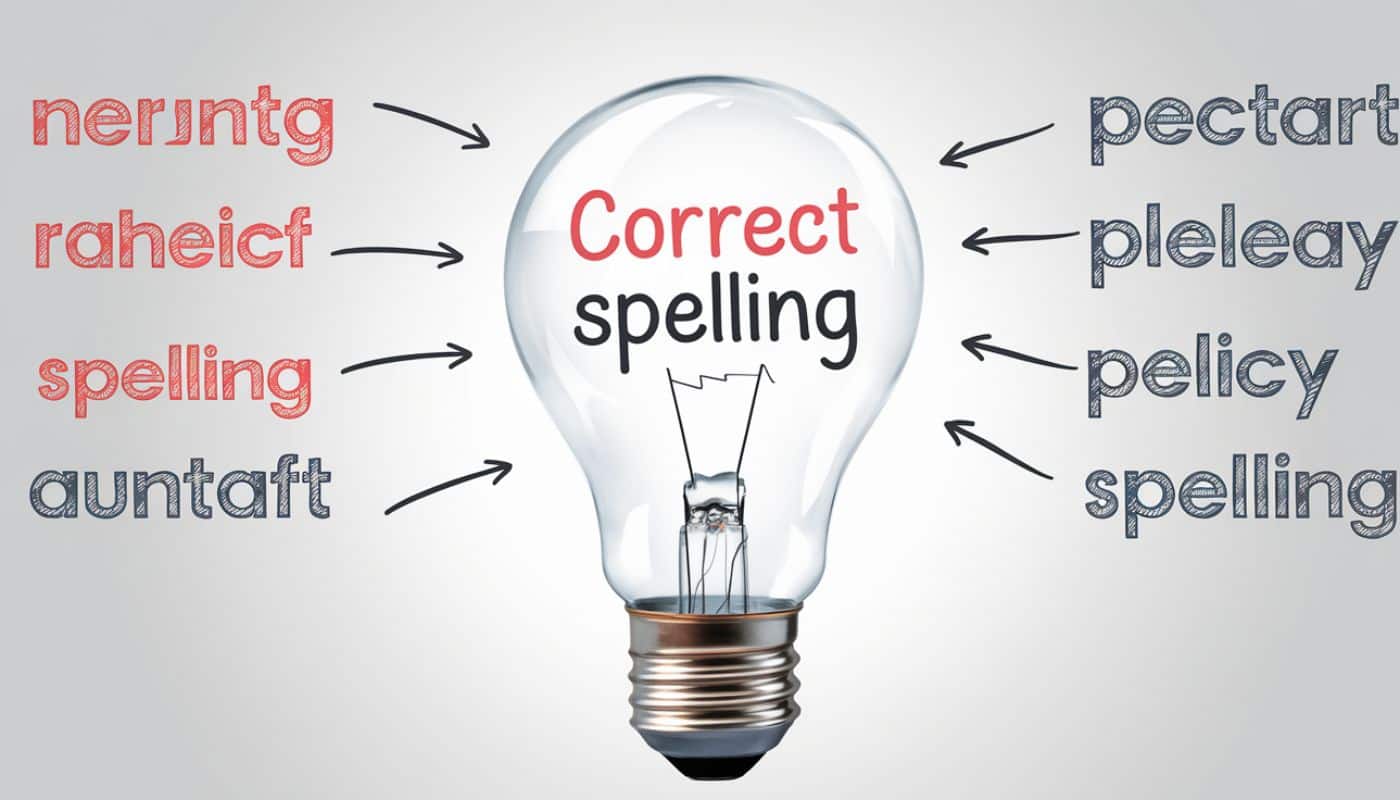Have you ever typed “messege” instead of “message” and wondered why it feels off? You’re not alone. This common spelling mistake trips up even the best writers.
In today’s fast-paced world of digital communication, where emails, texts, and instant messages dominate, small errors like this can have a big impact. Whether you’re drafting a business email or sending a quick text, getting the correct spelling of words like “message” matters more than you might think.
In this comprehensive guide, we’ll explore why “messege” is incorrect, how to avoid this and other common misspellings, and the tools and techniques you can use to improve your writing quality. Let’s dive in!
What is the Correct Spelling: “Message” or “Messege”?
The correct spelling is “message.” The word “messege” doesn’t exist in the English language. It’s a misspelling that often occurs due to phonetic confusion, typing errors, or even autocorrect errors.
Why “Message” is Correct
- Etymology: The word “message” comes from the Old French word “message” and the Latin word “missaticum,” meaning “to send.”
- Double Letters: The double “s” in “message” is a common source of confusion. Many people mistakenly type “messege” because they mishear or mispronounce the word.
Why “Messege” is Incorrect
- No Such Word: “Messege” isn’t recognized in any English dictionary. It’s simply a typo or misspelling of “message.”
- Phonetic Confusion: The soft “a” sound in “message” can easily be misheard as a hard “e,” leading to the incorrect spelling.
Why Does “Messege” Keep Appearing?
Despite being incorrect, “messege” pops up frequently in digital communication. Here’s why:
Phonetic Confusion
- Pronunciation: The word “message” is often pronounced quickly, making the “a” sound like an “e.” This leads to phonetic confusion and the incorrect spelling “messege.”
- Similar Words: Other words with double letters, like “accommodate” or “necessary,” also trip people up.
Typing Errors
- Fast Typing: When typing quickly, it’s easy to transpose letters or hit the wrong key. For example, typing “messege” instead of “message” is a common typing error.
- QWERTY Keyboards: The proximity of the “a” and “s” keys on a QWERTY keyboard increases the likelihood of typos.
Autocorrect Errors
- Autocorrect Failures: While autocorrect tools are helpful, they don’t always catch every mistake. If you frequently type “messege,” your device might start accepting it as correct.
- Predictive Text: Sometimes, predictive text suggestions can reinforce incorrect spellings if you’re not paying attention.
The Impact of Misspelled Words on Professionalism

In professional communication, spelling errors like “messege” can have serious consequences. Here’s how:
Undermining Credibility
- First Impressions: A business email with spelling mistakes can make you appear careless or unprofessional.
- Client Relationships: Clients may question your attention to detail if they spot errors in your written communication.
Real-World Examples
- Job Applications: A resume with spelling errors is often immediately discarded.
- Business Emails: A typo in an important email can lead to misunderstandings or even lost opportunities.
Examples: Incorrect vs. Correct Usage
Let’s look at some examples to reinforce the correct spelling:
Incorrect Example
- “I received your messege, and I’ll respond soon.”
Correct Example
- “I received your message, and I’ll respond soon.”
Preventing Spelling Mistakes: Simple Tips and Tools
Avoiding common misspellings like “messege” is easier than you think. Here are some practical tips:

Proofread Your Work
- Take Your Time: Always review your writing before hitting send.
- Read Aloud: Reading your text aloud can help you catch errors you might miss when reading silently.
Use Autocorrect and Spell Check
- Enable Tools: Make sure spell check and autocorrect are turned on in your word processor or browser.
- Advanced Tools: Consider using tools like Grammarly or Hemingway Editor for more thorough proofreading.
Learn Commonly Confused Words
- Create a List: Keep a list of words you frequently misspell, like “message,” “accommodate,” or “definitely.”
- Practice: Use flashcards or spelling apps to improve your language skills.
Common Misspellings and Their Impact on Professional Writing
Beyond “messege,” many other words are frequently misspelled in professional writing. Here are a few examples:
| Incorrect Spelling | Correct Spelling |
|---|---|
| Messege | Message |
| Definately | Definitely |
| Seperate | Separate |
| Accomodate | Accommodate |
Why These Mistakes Matter
- Clarity: Misspelled words can confuse readers and obscure your message.
- Professionalism: Consistent errors can damage your reputation in professional relationships.
Conclusion
Getting the correct spelling of words like “message” might seem like a small detail, but it can have a big impact on your communication effectiveness. Whether you’re writing a business email or a casual text, taking the time to proofread and use tools like spell check can make all the difference.
Next time you type “message,” take a second to ensure you’ve got it right—it’s a small step that makes a big difference.
Frequently Asked Questions?
Q: Is “messege” ever correct?
A: No, “messege” is always a misspelling of “message.”
Q: Why do people confuse “message” and “messege”?
A: The confusion often stems from phonetic confusion and typing errors.
Q: How can I avoid spelling mistakes in professional writing?
A: Use tools like autocorrect and spell check, proofread your work, and practice commonly confused words.

Emily Hudson, the creative mind behind “English Summa,” is a passionate English language educator with a Bachelor’s Degree in English and a Teaching Certification. Dedicated to making the intricacies of English accessible to learners, Emily brings a blend of expertise and enthusiasm to her readers. Follow English Summa for insightful language tips, literary explorations, and a shared love for the beauty of English.






![# **25 Ways to Say “Have a Good Evening” Professionally** In professional communication, the way you bid farewell can leave a lasting impression. While “Have a good evening” is a polite and common phrase, it can sometimes feel generic or lack the personal touch needed to strengthen relationships. Whether you’re speaking to colleagues, clients, or business partners, tailoring your farewell to the context can demonstrate thoughtfulness, cultural awareness, and professionalism. This article explores **25 professional ways to say “Have a Good Evening”**, complete with real-world scenarios, cultural considerations, and tips to elevate your communication. By the end, you’ll have a toolkit of phrases to suit any professional setting, ensuring your farewells are memorable and meaningful. --- ## **Why Your Farewell Matters** The way you end a conversation or email is more than just a formality—it’s an opportunity to reinforce relationships, express gratitude, and set the tone for future interactions. A well-crafted farewell can: - **Show appreciation**: Acknowledge the time and effort of the person you’re speaking to. - **Reflect professionalism**: Demonstrate your attention to detail and cultural sensitivity. - **Encourage positivity**: Leave the other person feeling valued and respected. In professional settings, the right phrase can enhance your reputation and foster stronger connections. Let’s dive into 25 alternatives to “Have a Good Evening,” each tailored to different contexts. --- ## **25 Professional Ways to Say “Have a Good Evening”** ### **1. Wishing You a Productive Evening** **Scenario**: Email to a Team *“Hi Team, thank you for your hard work today. Wishing you a productive evening as you wrap up your tasks. Let’s regroup tomorrow with fresh energy!”* **Why It Works**: This phrase motivates your team to stay focused while acknowledging their efforts. --- ### **2. Have a Restful Evening** **Scenario**: Closing a Meeting *“Thank you all for your contributions today. Have a restful evening—you’ve earned it!”* **Why It Works**: It emphasizes the importance of recharging, which is especially meaningful after a long day. --- ### **3. Enjoy a Relaxing Evening** **Scenario**: Follow-Up Email to a Client *“Dear [Client’s Name], thank you for your time today. I hope you enjoy a relaxing evening. Looking forward to our next steps!”* **Why It Works**: It conveys warmth and shows you care about their well-being. --- ### **4. Wishing You a Serene Evening** **Scenario**: Email to a Senior Colleague *“Thank you for your guidance today. Wishing you a serene evening ahead.”* **Why It Works**: The word “serene” adds a touch of elegance and calmness, perfect for formal settings. --- ### **5. Here’s to a Gentle Farewell** **Scenario**: Networking Event *“It was a pleasure connecting with you tonight. Here’s to a gentle farewell—until next time!”* **Why It Works**: This phrase is warm and memorable, ideal for informal professional settings. --- ### **6. Wishing You Evening Wishes** **Scenario**: Formal Email Sign-Off *“Thank you for your time today. Wishing you evening wishes as you unwind.”* **Why It Works**: It’s unique and adds a personal touch to your communication. --- ### **7. Enjoy a Well-Deserved Break** **Scenario**: Team Chat After a Busy Week *“Great job this week, everyone! Enjoy a well-deserved break this evening.”* **Why It Works**: It acknowledges hard work and fosters team morale. --- ### **8. Take Care This Evening** **Scenario**: Email to a Colleague *“Thanks for your help today. Take care this evening, and I’ll see you tomorrow!”* **Why It Works**: It’s simple, friendly, and shows genuine concern. --- ### **9. I Hope You Have a Thoughtful Closing** **Scenario**: End-of-Day Recap *“As we wrap up, I hope you have a thoughtful closing to your day. Reflect on your achievements—you’ve done great work!”* **Why It Works**: It encourages mindfulness and self-appreciation. --- ### **10. May Your Evening Be Productive** **Scenario**: Informal Chat with a Colleague *“Before you head out, may your evening be productive! Let’s keep the momentum going.”* **Why It Works**: It’s motivating and keeps the focus on progress. --- ### **11. Here’s to a Positive End to the Day** **Scenario**: Team Meeting Conclusion *“Let’s toast to a positive end to the day! Thank you for your hard work, everyone.”* **Why It Works**: It fosters camaraderie and leaves a lasting impression. --- ### **12. Wishing You a Peaceful Evening** **Scenario**: Email to a Client *“Thank you for your time today. Wishing you a peaceful evening as you review the details.”* **Why It Works**: It’s respectful and creates a calming tone. --- ### **13. May You Enjoy Your Evening** **Scenario**: Closing a Conference Call *“Thank you for your valuable input today. May you enjoy your evening, and let’s touch base again soon!”* **Why It Works**: It leaves a warm impression, encouraging ongoing collaboration. --- ### **14. I Hope You Can Unwind** **Scenario**: Email to a Co-worker *“Thanks for your efforts on the project. I hope you can unwind this evening; you’ve certainly earned it!”* **Why It Works**: It shows empathy and understanding of the need for downtime. --- ### **15. Have a Calm Evening Ahead** **Scenario**: Follow-Up After a Presentation *“Great job today, team! Have a calm evening ahead, and let’s regroup tomorrow to discuss next steps.”* **Why It Works**: It promotes tranquility and sets a positive tone for the following day. --- ### **16. Here’s to a Fulfilling Evening** **Scenario**: Team Building Event *“Thank you for your participation! Here’s to a fulfilling evening with your loved ones. Remember, balance is key!”* **Why It Works**: It reinforces the idea of work-life balance, encouraging employees to value their personal time. --- ### **17. Wishing You Relaxation and Joy** **Scenario**: Informal Email *“Hey Jamie, I wanted to say thanks for your support on the project. Wishing you relaxation and joy this evening! You deserve it.”* **Why It Works**: This friendly approach fosters a positive rapport and acknowledges hard work. --- ### **18. May Your Evening Be Bright** **Scenario**: Casual Goodbyes *“Take care, everyone! May your evening be bright and filled with fun! See you all tomorrow.”* **Why It Works**: It adds a cheerful touch, enhancing workplace relationships. --- ### **19. Hoping You Enjoy a Pleasant Evening** **Scenario**: Formal Email *“Dear Ms. Harris, thank you for your continued support. I hope you enjoy a pleasant evening after a busy day.”* **Why It Works**: It maintains a formal yet warm tone, suitable for professional interactions. --- ### **20. Have a Wonderful Evening Ahead** **Scenario**: Conclusion of a Workshop *“Thank you all for your engagement today. Have a wonderful evening ahead; I look forward to seeing you at our next session!”* **Why It Works**: It encourages ongoing learning and connection. --- ### **21. Here’s to Kind Farewells** **Scenario**: Ending a Client Meeting *“Thank you for your time today. Here’s to kind farewells and a successful partnership moving forward!”* **Why It Works**: It emphasizes mutual respect and the importance of positive relationships in business. --- ### **22. Wishing You a Refreshing Evening** **Scenario**: Email to a Mentor *“Thank you for your advice today. Wishing you a refreshing evening—you’ve inspired me to approach things differently!”* **Why It Works**: It shows gratitude and acknowledges their impact. --- ### **23. May Your Evening Be as Rewarding as Your Day** **Scenario**: Email to a Hardworking Colleague *“Your dedication today was impressive. May your evening be as rewarding as your day!”* **Why It Works**: It’s a creative way to compliment their efforts. --- ### **24. Here’s to a Smooth Transition into Evening** **Scenario**: End of a Busy Workday *“Great work today, everyone. Here’s to a smooth transition into evening—see you tomorrow!”* **Why It Works**: It acknowledges the shift from work to personal time. --- ### **25. Wishing You a Joyful Evening** **Scenario**: Casual Team Chat *“Thanks for the laughs today, team. Wishing you a joyful evening—see you tomorrow!”* **Why It Works**: It’s lighthearted and fosters a positive team culture. --- ## **Cultural and Professional Considerations** When choosing how to say “Have a Good Evening,” consider the following: 1. **Cultural Sensitivity**: In some cultures, overly personal phrases may be seen as intrusive. Stick to neutral, respectful language in formal or cross-cultural settings. 2. **Hierarchy**: When addressing senior colleagues or clients, opt for more formal phrases like “Wishing you a serene evening” or “May your evening be productive.” 3. **Context**: Tailor your farewell to the situation. For example, after a stressful meeting, phrases like “Have a restful evening” or “I hope you can unwind” show empathy. --- ## **Conclusion** The way you say “Have a Good Evening” can significantly impact your professional relationships. By choosing the right phrase for the context, you can leave a positive, lasting impression that reflects your thoughtfulness and professionalism. Whether you’re addressing a team, a client, or a colleague, these 25 alternatives will help you elevate your communication and foster stronger connections. Next time you bid farewell, try one of these phrases and observe how it shapes the tone of your interactions. Remember, a thoughtful goodbye is more than just words—it’s an opportunity to show appreciation, build rapport, and leave a lasting impact.](https://englishsumma.net/wp-content/uploads/2025/02/25-Ways-to-Say-Have-a-Good-Evening-Professionally-In-professional-communication-the-way-you-bid-farewell-can-leave-a-lasting-impression.-While-Have-a-good-evening--150x150.jpg)







